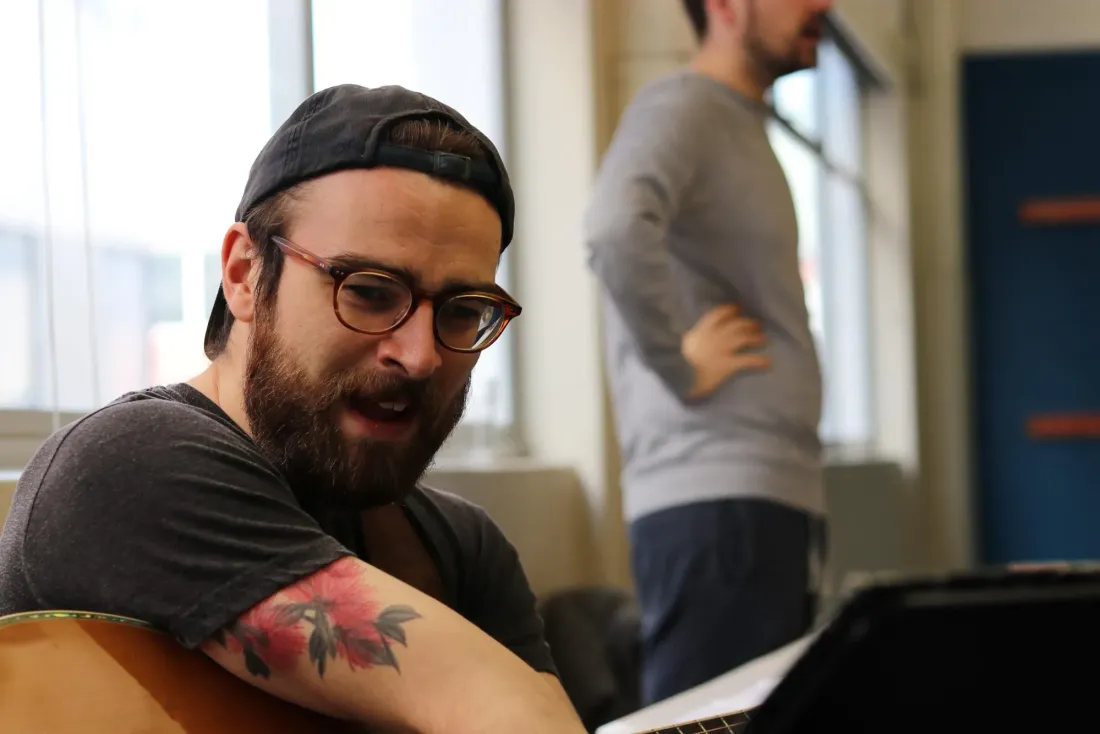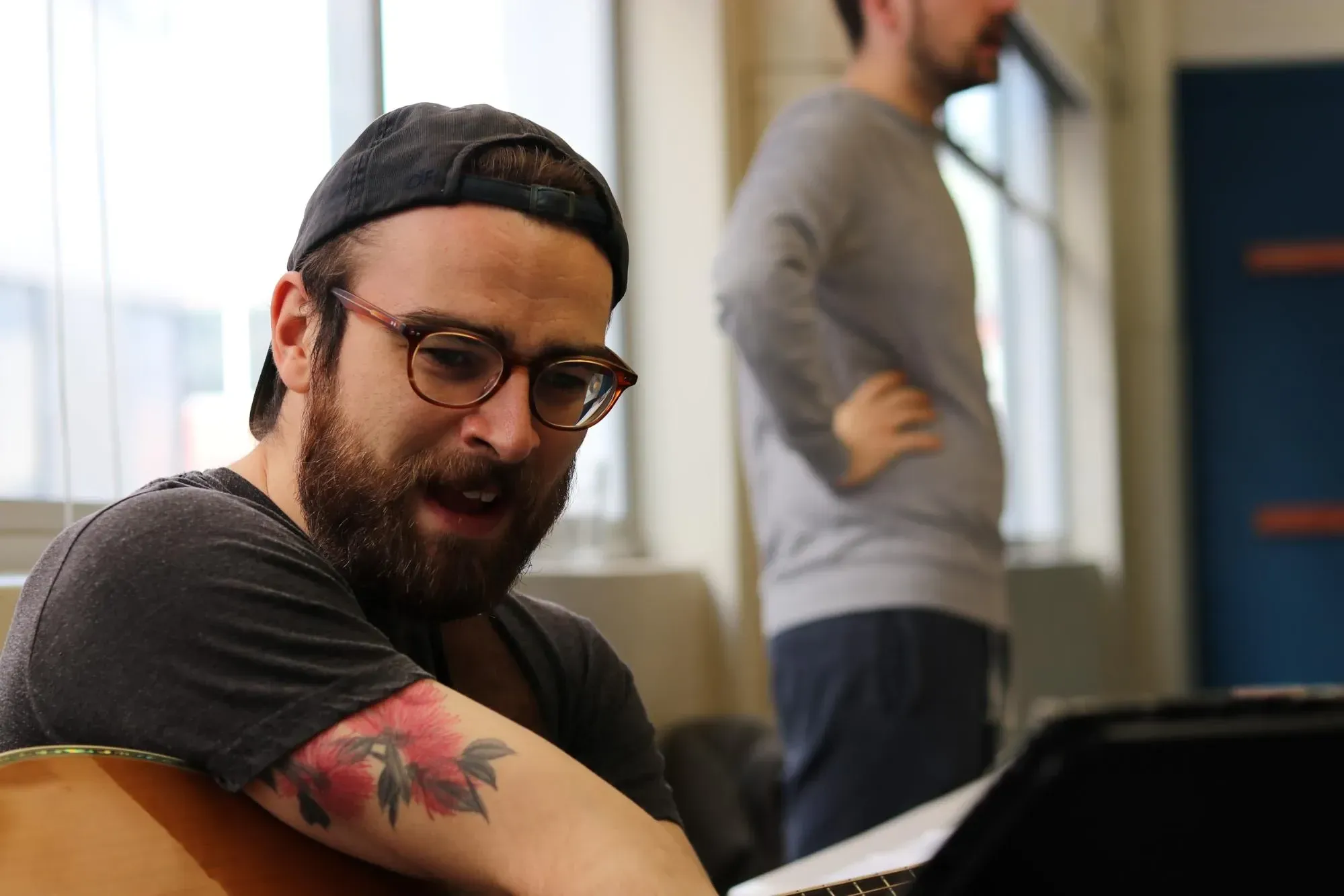Make Some Noise!
Written by


I recently got into a calm, well-reasoned, online discussion (read: argument) with a stranger over something he’d said about art. “We should only make art about important political ideas,” he’d theorised. “The world doesn’t need any more light entertainment.”
It made me think about another argument that I often find myself presented with. Working in both musical and straight theatre (non-musical theatre, in other words), I’m often privy to snide remarks from straight theatre colleagues that imply musical theatre is silly, cheesy, unsophisticated, unworthy of serious analysis or consideration; something this person would dismiss as “light entertainment”. For many makers of straight theatre, musical theatre is a guilty pleasure – something to feel a little bit embarrassed about.
Of course, saying all musical theatre is ‘light’ (or even entertaining...) is a drastic oversimplification and simply not true. Musical theatre is a form, not a genre – it doesn’t all sound, look or feel the same. A person who thinks Gypsy, Hadestown and Spring Awakening are indistinguishable must be so tone deaf they’d mix up the music of Fatboy Slim, David Bowie and Outkast (all of whom have written musicals, FYI). Similarly, musical theatre’s subject matter is as diverse as that of its non-musical counterparts. Anyone describing Marie Christine or Passion as ‘light entertainment’ must lead a rather joyless existence.
But there’s another assumption in both anti-musical theatre sentiment and that sweeping statement I read online. The assumption is that light entertainment cannot contain important political ideas; that musical theatre cannot be funny, crowd-pleasing – yes, even silly or cheesy – and still be a vessel for complex, nuanced statements about the world around us. This is an assumption that judges a work on its aesthetics – the jazz hands, the belting, the four-part harmony – without listening to what it has to say.
Let us have light entertainment like In The Heights, a sweet-natured, romantic dramedy that’s also about immigration, gentrification and community; like Legally Blonde, a fun, silly based-on-a-movie comedy that’s also about the value of femininity in a toxic patriarchal context; like Urinetown, a scatalogical satirical comedy that’s also about exploitative late capitalism and the problems with its alternatives.
Let’s not have light entertainment like Rock of Ages, a ‘comedy’ that’s also about how being gay is inherently hilarious, and how the best part of the 1980s was the rampant misogyny – hey, just because everything is political doesn’t mean the politics are always good.
Musical theatre encompasses so much more than ‘light entertainment’ – it is as broad in its politics and thematic concerns as any other type of theatre. But my point is that even light entertainment is political – every form of art is. Rather than dismissing a work or consigning it to the guilty pleasure pile purely because of its aesthetics, let’s listen to what it’s actually saying.
This blend of entertainment and politics is exactly what our new musical, The Bone Thief, explores. This dark fairytale tackles economic hardship, the innocence of youth and fears of foreign cities' dangers. While it's definitely not 'light' entertainment - there is a lot of child death - it's unabashedly a musical, drawing from classic rock like Led Zep and Opeth, and performed by six fantastic singer-actors. We're not compromising on the show's aesthetic value, but we're not holding back in our commentary about the world around us either. It’s not either/or. Music theatre lets us have it both ways.
The Bone Thief runs from 12 – 21 July at the Gryphon Theatre; tickets are available through Eventfinda.

